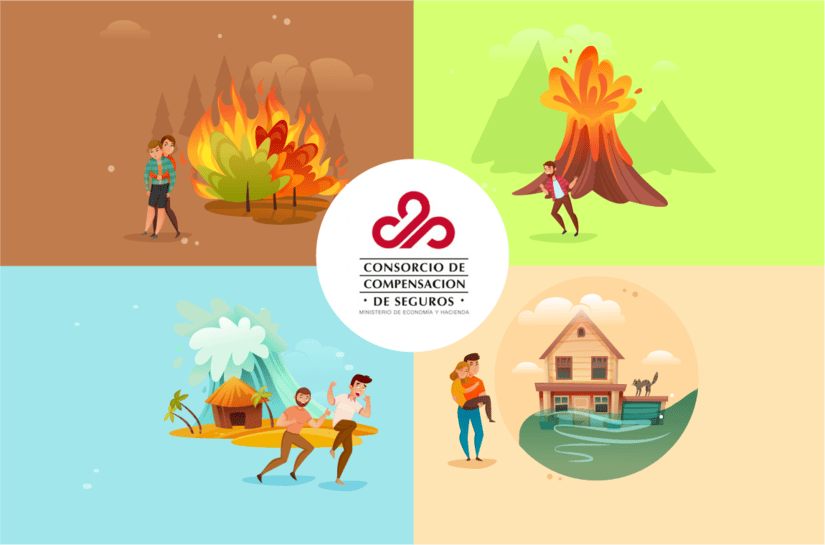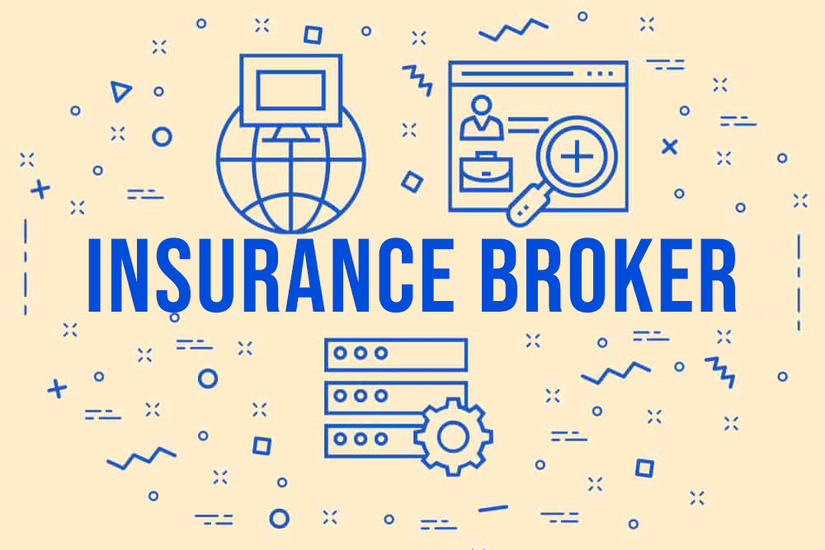Insurance Compensation Consortium in Spain
Julia Jannin2025-03-05T09:43:31+00:00The Insurance Compensation Consortium in Spain
We have written this article to help you better understand how the Insurance Compensation Consortium works and to guide you on how to proceed in the event of an extraordinary situation.
Index
ToggleWhat is the Insurance Compensation Consortium?
The Insurance Compensation Consortium (“consorcio de compensación de seguros CCS”) is a public body attached to the Ministry of the Economy, Industry and Competitiveness. Born in 1954, it has several missions including covering claims caused by extraordinary risks such as the Filomena storm or more recently the eruption of the volcano of La Palma.
What does the Insurance Compensation Consortium cover?
The consortium covers in 4 situations:
- Natural phenomena
- Extraordinary floods, earthquakes, tidal waves, volcanic eruptions, cyclonic storm….
- Violent phenomena
Damage resulting from acts of terrorism, rebellion, or popular uproar.
- Disasters caused by the armed forces
Damage caused by the Security Forces and Corps in peacetime and in an extraordinary manner
- Damage in the event of non-insurance
In the event that you have an accident without insurance or an extraordinary phenomenon occurs, the Insurance Compensation Consortium will also be responsible for the cost of the damage caused; in the case of home insurance, the Consortium will not be responsible for compensation.
Likewise, if you have a claim with a third party involved and the latter has no insurance, it will also be the Insurance Compensation Consortium which will initially assume the costs.
How does the insurance consortium work?
The Insurance Compensation Consortium receives a portion of the insurance premiums that customers pay to their insurer. This means that whenever you pay for your insurance, whether it is home, auto, life, or any other insurance that is not considered extraordinary risk, a portion of that amount goes to fund that entity. If you look at the details of your insurance policy, you will see the percentage that goes to the CCS. This is the surcharge on insurance for extraordinary risks for direct damage to people and property.
It is therefore a support for insurance companies, which would not be able to pay as much money in the event of an extraordinary event affecting a large number of policyholders.
How does the insurance consortium pay compensation?
Payment of compensation by the Insurance Compensation Consortium is made by bank transfer. Compensation will only be paid to beneficiaries of the insurance policy.
What is the indemnification period for the Insurance Compensation Consortium?
In accordance with what is established in the Law on Insurance Contracts (Ley de Contrato de Seguro) in Article 20.9, the insurance compensation consortium must make the payment of the compensation within a maximum of 3 months after the date of the claim.
What should I do to cover my claim?
You can declare your claim to the Consortium via its website by clicking here or by telephone (900 222 665 or 952 367 042) by submitting the corresponding request.
You can also contact INOV Expat so that you can receive professional, impartial and independent advice from your insurance broker. INOV Expat will guide you through the steps you will need to take to receive the corresponding compensation.
The following information must be sent to the organization:
- Policy number and name of the insurance company
- Bank details (IBAN)
- NIF / NIE / CIF
- Address and telephone number
Once the declaration has been made, an expert will be appointed to assess and quantify the damage. They will provide you with a reference number which will be sent to you by email or SMS.
INOV Advice: To facilitate the expertise, INOV Expat recommends that you keep the remains of damaged items and invoices. You can also take photos of the damages.
Is there a deadline for reporting the claim to the Consorcio?
In order to report the claim and collect compensation, the CCS recommends contacting them as soon as possible. This allows the insurance consortium to assess the damage caused and speed up the process of paying compensation.
The recommended deadline is 7 days from the occurrence of the claim, although the consortium can accept claims submitted after this deadline.
In case of you do not have insurance, do not hesitate to ask us for a comparison of the best boat insurance here.
There are many insurance companies and different contract options. For this reason, we recommend that you use the services of a specialist broker who will be able to guide you. If you have any questions, do not hesitate to contact us directly by telephone on +34 93 268 87 42 or through WhatsApp on +34 627 627 880 or by email: [email protected]
Arbre vecteur créé par macrovector - fr.freepik.com
Inov Expat : Who are we?
INOV Expat is an insurance brokerage firm aimed at expatriates in Spain and Portugal.
INOV Expat is right there to help you: giving you the best advice on insurance, in English!
In fact, after 15 years, INOV Expat, an insurance brokerage firm, specialises in insurance for French and English-speaking expatriates in Spain and Portugal, at their destinations. As insurance professionals, we’ve signed partnership agreements with the best insurance companies in the market. All INOV Expat consultants are expatriates who will be able to advise you best in the language of your choice (English, French, Russian, Spanish, Portuguese…)
Ask you free quote online : car, health, home, life, travel, others. Look at our website inovexpat.com or contact us by e-mail at [email protected], by telephone at +34.93.268.87.42 or WhatsApp +34.627.627.880.
![]()











